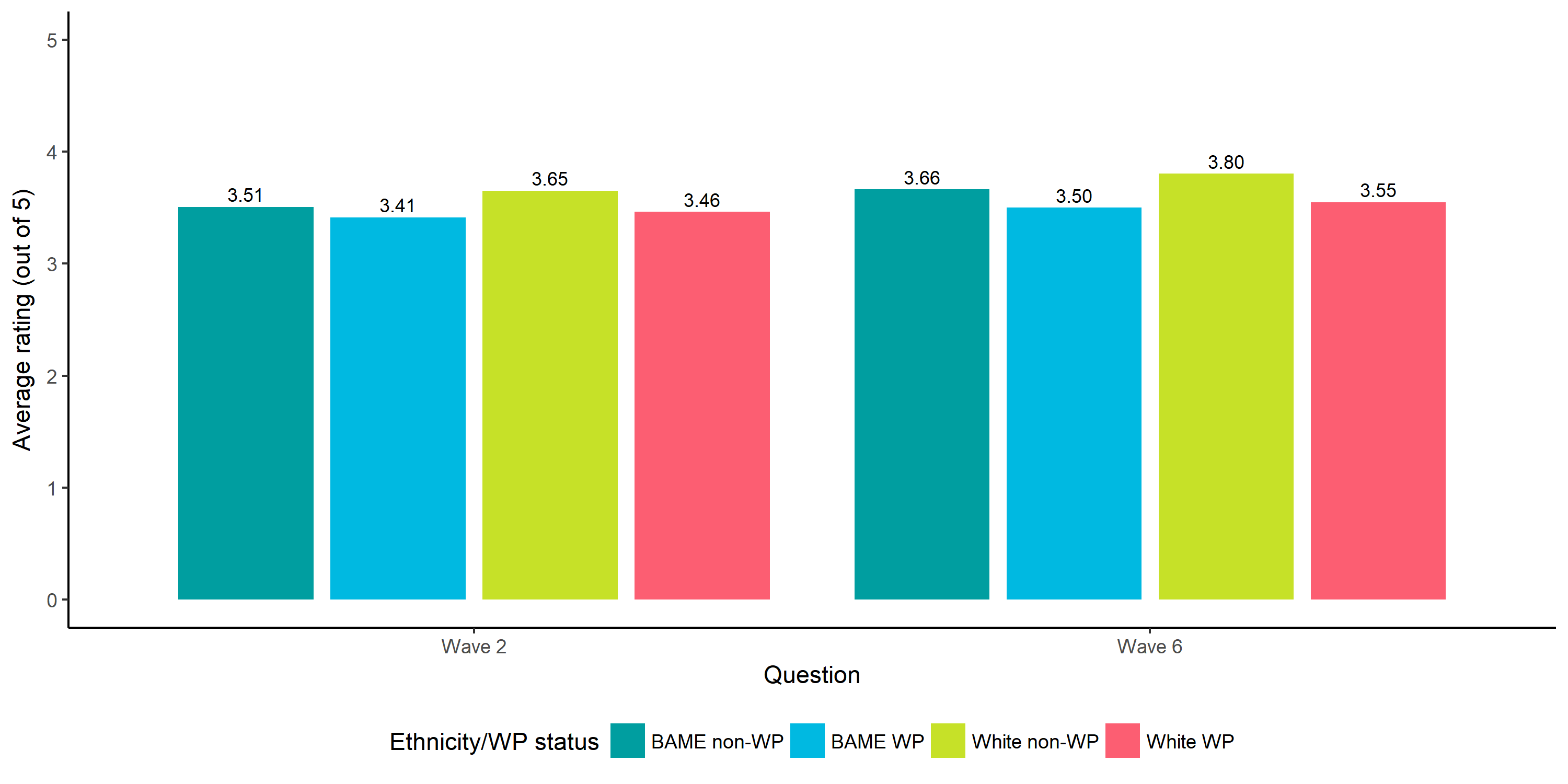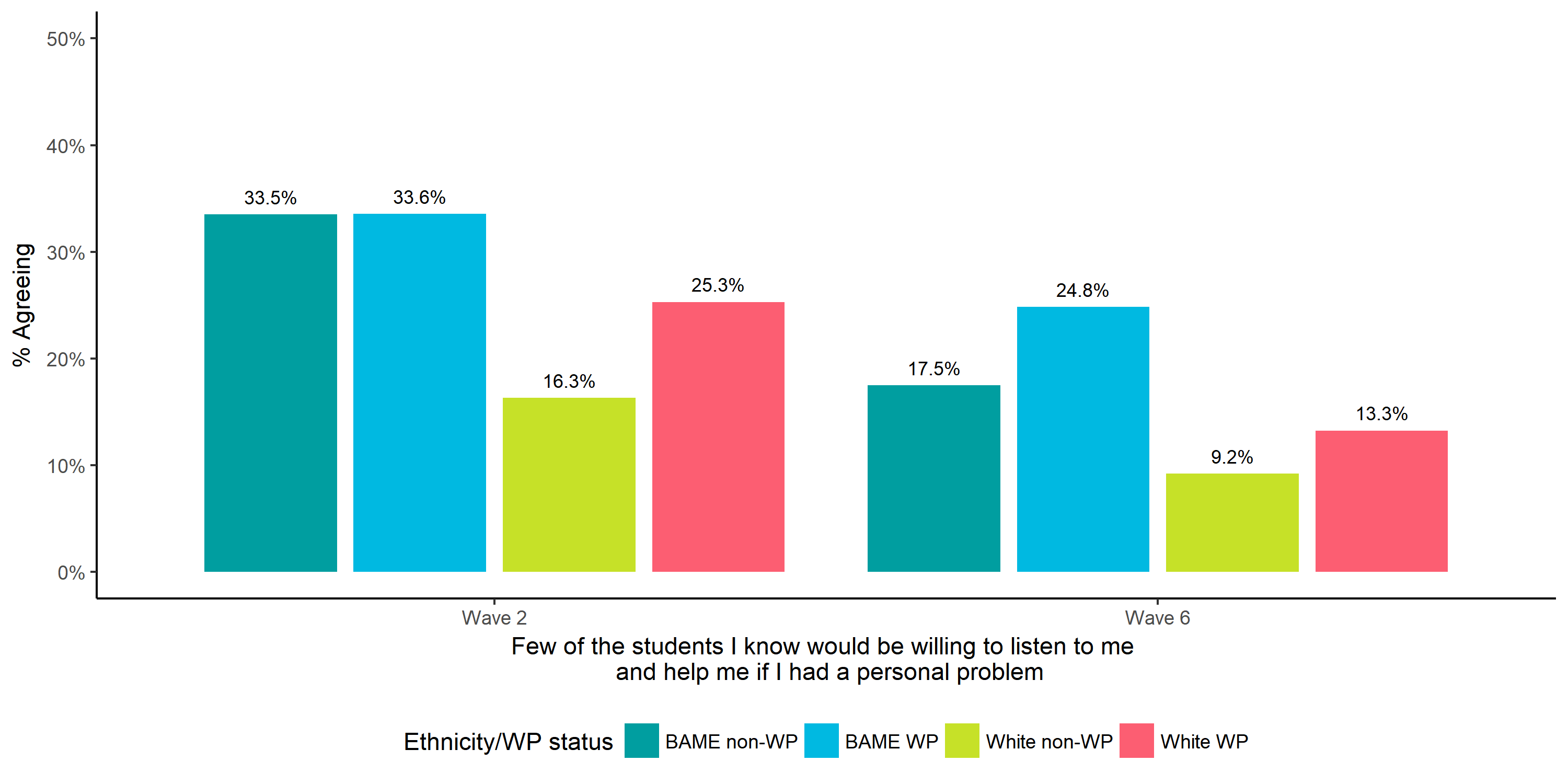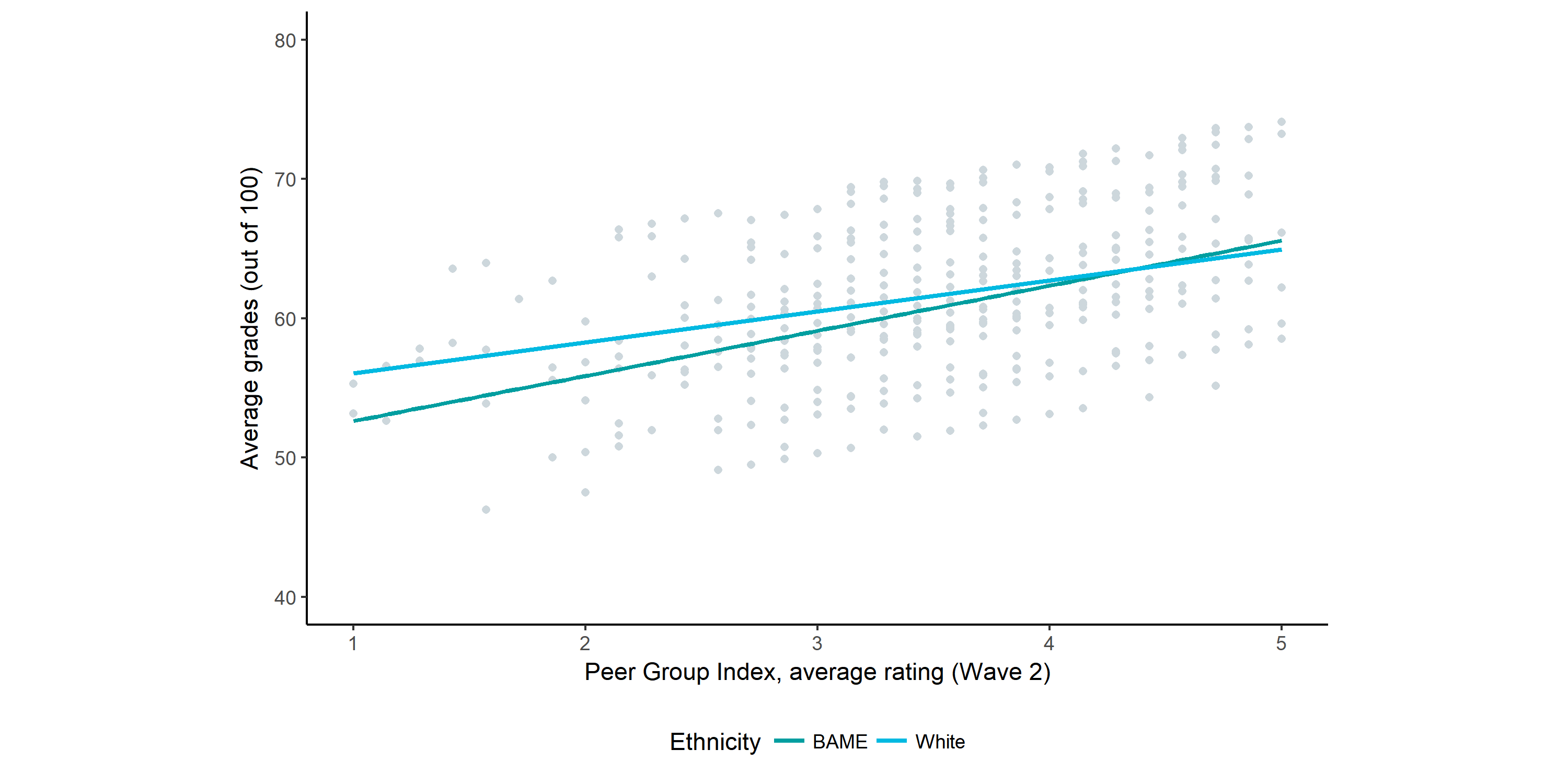
By Vanessa Todman and Susannah Hume, King’s College London |
In one of our first blogs on this site, our Director, Anne-Marie Canning, described the student experience as something like a jewellery box:
The undergraduate experience is abundant with opportunities. I imagine some learners reaching into that jewellery box and taking out internships, study abroad experiences, research projects, societies and many more ‘high return’ co-curricular activities. We know that these activities are highly valued by employers and have a positive impact on student belonging and satisfaction.
A lot of the interventions the KCLxBIT project tested sought to encourage students to take advantage of that jewellery box, through promoting the opportunities that King’s offers: study skills support, the Welcome Fair, Study Abroad.
In our newly set-up What Works Department we have given a lot of thought to how we will take the findings of those KCLxBIT trials, and the findings from our Pulse Survey, forward. We have identified two key areas of focus for 2018/2019:
- Increasing students’ feeling of “belonging” at King’s,
- Increasing students’ social capital.
These have been identified as key areas where we can empower and enable students, and thereby support their success at King’s.
In June 2017, OFFA reported that while more disadvantaged young people were in higher education than ever before, the numbers of those students leaving before completing their studies had risen for the second year in a row. They also reported that the gap between the non-continuation rates of the most advantaged and most disadvantaged students had widened[i] ; students from widening participation backgrounds are more at risk of withdrawal.
Research, outlined below, suggests that increasing social connections for widening participation students can increase their sense of belonging and social capital, and so potentially positively influence their persistence, and well-being.
Every student has the right to feel like they belong at university
A sense of belonging is now understood to be an important need for students to function well in learning environments. It has a direct link to a student’s academic motivation and belief in their ability to succeed. Sense of belonging is psychological and subjective; it’s, ‘The extent to which students feel personally accepted, respected, included, and supported by others in the school social environment’[ii])
Key theorists, such as Tinto and Bean, propose that those who feel like they belong and are sufficiently integrated into the academic and social aspects of university are more likely to persist, and this is supported by research[iii]. Demographic factors, especially social class and race, also have a profound effect on whether a student feels a sense of belonging to their institution, therefore feeling of belonging (or that they are ‘fitting in’) has also been highlighted as a major predictor of minority retention. [iv] [v]
Social capital provides students with tangible and intangible support to get on at, and after, university
Social capital refers to the resources we have at our disposal as a result of who we know: it includes our access to networks to help us understand, and navigate, the world around us, as well as our ability to mobilise those networks to concrete ends, such as getting an internship. It is our friends and family who help us translate the work around us and teach us the unwritten rules, and this can have a massive impact on our achievement.
For some people, the social capital passed on to them by their parents and family, and their peer groups in school and university, will be strong enough to help them get into the labour market, get good jobs, and take risks (such as starting a business or taking an unpaid internship) that will ultimately translate into healthier, wealthier lives. However, others, especially people from more disadvantaged backgrounds, may not have access to the types of social capital that help them get ahead at university and professionally (although they may have other types of social capital)[vi] . Students from non-traditional backgrounds are less likely to take up extra-curricular activities, hindering their ability to form networks with others with different experiences and sources of knowledge.[vii]
For students who have come to university with less social capital than their peers , university is a key opportunity to build their social capital: through broadening their social networks to encompass other university students headed for similar careers, they can gain access to some of those peers’ social capital–particularly if they make friends with students from different backgrounds to their own.
What does this look like for King’s students?
Analysis of the 16-17 Pulse Survey of first year undergraduates reveals how King’s students feel about their peer groups, and how this is associated with their achievement. We asked respondents a set of questions known as the Peer Group Index (PGI, which includes questions like”Since coming to this university I have developed close personal relationships”) at two points: in November of their first year (Wave 2), and again in July (Wave 6), after they had got their results.
Looking at aggregate scores, we find that white, non-WP respondents to the Pulse Survey expressed consistently more satisfaction with their peer groups overall, while WP students (both BAME and white) expressed lower satisfaction overall, and also showed less of an increase in positivity between Wave 2 and Wave 6.
One particular question on this scale stood out to us, though: the question “Few of the students I know would be willing to listen to me and help me if I had a personal problem”. This is probably the question in the scale that gets closest to what we might consider “Social Capital”. In this question, we found that twice as many BAME students agreed with this statement as white, non-WP students. The chart below gives Pulse respondents’ answers to this question, by Ethnicity and WP status, across Waves 2 and 6.
We were also interested in whether students’ satisfaction with their peer groups had any bearing on their grades. Interestingly, controlling for gender and faculty, we found that their average positivity on the PGI in Wave 2 was significantly associated with end of first year attainment, but not their positivity on this measure in July, nor the change in satisfaction between the two time points. The chart below gives the relationship between positivity on the PGI in November and average module results, plotted separately for white and BAME students.
All this taken together suggests that belongingness, social capital and the strength of friendships do matter, both in terms of students’ wellbeing and in terms of their grades. Evidence from the Pulse Survey suggests that low belongingness is intersectional, and that BAME students from WP background may in particular need support and affirmation to know they fit in at King’s.
Encouraging student interaction to boost sense of belonging and social capital
So what can we do to increase social capital and belongingness at King’s? One answer lies in helping students to build social networks. Belongingness and social capital are both relational: neither can be achieved without the building of connections between people; Individuals build their social capital by making links and bonds with a variety of people[viii] and the need to belong stems from a need to feel a stable interpersonal relationship with others[ix].
Social connections are important. If some students at King’s have access to social support, and other’s don’t, then that also creates inequities of experience. Students need other students to lend them notes and commiserate about reading lists, tutors to give them feedback on how they’re going, parents to listen to them cry down the phone, and friends to reassure them that they’ve felt that way too.
The problem is, if for some reason a student hasn’t made friends in halls (and a lot of King’s students commute in), and they didn’t get a chance to make friends in Welcome Week, than making friends during term time can be hard. Students turn up bleary-eyed for lectures, take their notes and then shuffle off home to prepare for their afternoon seminar, they don’t tend to hang about for wine and cheese mixers. So how can we help with that?
- One way to meet lots of different people is to stay on halls of residence. We are currently trialling encouraging those thinking of going into halls of residence to accept a place.
- Induction has been found to be a key factor in fostering an early sense of belonging.[x] We are therefore continuing to encourage students to attend the annual Welcome Fair and looking into how we can encourage sign up by widening participation student for extra-curricular activities.
- Over the summer, we also hope to also use online platforms to get new students talking before they’ve even started at King’s, by encouraging students about to move into the same halls of residence to join group chats.
- We are also talking to students to understand their experience of receiving feedback- a key interaction between academics and students
Keep reading our blog for updates on how these, and our other projects, progress.
Click here to join our mailing list.
Follow us on Twitter: @KCLWhatWorks
______________________________________________________________________________________
[i] OFFA (2017) Outcomes of access agreement monitoring for 2015-16
[ii] Goodenow, C. (1993). The psychological sense of school membership among adolescents: Scale development and educational correlates. Psychology in the Schools, 30, 79-90. Pg 80.
[iii] Thomas, L. (2012) Building student engagement and belonging in Higher Education at a time of change: final report from the What Works? Student Retention & Success programme, Paul Hamlyn Foundation
[iv] Hurtado, S., & Carter, D. F. (1997). Effects of college transition and perceptions of the campus racial climate on latino college students’ sense of belonging. Sociology of Education, 70, 324-345.
[v] Hausmann, L. R.M., Schofield, J. W., Woods, R. L. (2007). Sense of belonging as a predictor of intentions to persist among African American and White first-year college students. Research in Higher Education, 48(7), 803-839
[vi] HEPI (2017) Where next for widening participation and fair access?
[vii] Bathmaker,AM. Ingram, N. and Waller, R. (2013), ‘Higher education, social class and the mobilisation of capitals: Recognising and playing the game’, British Journal of Sociology of Education, 34 (5-6). pp. 723-743, Available at http://eprints.uwe.ac.uk/26463/8/ Final%20version%20inc%20abstract.pdf
[viii] Healy,T. Côté, S. (2001)The Wellbeing of Nations : The role of Human and Social Capital, OECD Publishing
[ix] Baumeister, R. F., & Leary, M. R. (1995). The need to belong: Desire for interpersonal attachments as a fundamental human motivation. Psychological Bulletin, 117, 497-529
[x] Thomas, L. (2012) Building student engagement and belonging in Higher Education at a time of change: final report from the What Works? Student Retention & Success programme, Paul Hamlyn Foundation




Leave a Reply